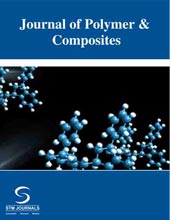Open Access

Aiste Balciunaitiene,

Jonas Viskelis,

Viktorija Puzeryte,

Pranas Viskelis,

Urte Riaubyte,
- Senior Researcher Lithuanian Research Centre for Agriculture and Forestry, Institute of Horticulture, 54333 Babtai, Baltic Europe
- Chief Researcher Lithuanian Research Centre for Agriculture and Forestry, Institute of Horticulture, 54333 Babtai, Lithuania Baltic Europe
- Phd Student Lithuanian Research Centre for Agriculture and Forestry, Institute of Horticulture, 54333 Babtai, Lithuania Baltic Europe
- Chief Researcher Lithuanian Research Centre for Agriculture and Forestry, Institute of Horticulture, 54333 Babtai, Lithuania Baltic Europe
- Bachelor Student Vilnius University, Life Sciences Center,10257 Vilnius, Lithuania Baltic Europe
Abstract
Green silver nanoparticles (AgNPs) synthesized using medical plant extracts as capping and reducing agents demonstrate broad applicability in addressing the threat posed by infections. In this study, we present a sustainable, low-toxicity, and cost-effective bacterial nanocellulose composite with silver nanoparticles based on green synthesis that uses Origanum vulgare as a reducing agent due to numerous biological components. The formation of AgNPs in composite and morphological properties was analyzed using scanning electron microscopy (SEM), energy-dispersive spectroscopy (EDS), and transmission electron microscopy (TEM) techniques. Antimicrobial activity was determined using the agar diffusion Kirby–Bauer method against Gram-positive and Gram-negative bacterial strains. The antimicrobial activity of bacterial nanocellulose composite/AgNPs was substantially strong against all tested bacterial cultures. The structural investigation of AgNPs by TEM presents the presence of spherical-shaped silver nanoparticles in cellulose composite. This method of obtaining antimicrobial composites could be widely used to fight against antibiotics, antibiotic-resistant antibiotic-resistant bacteria, and other Gram-positive and Gram-negative bacteria.
Keywords: nanocellulose composite, silver nanoparticles, antimicrobial activity, Origanum vulgare, biosynthesis.
[This article belongs to Special Issue under section in Journal of Polymer and Composites(jopc)]
Browse Figures
References
- Analysis of antibiotic residues in raw bovine milk and their impact toward food safety and on milk starter cultures in cheese-making process – ScienceDirect [Internet]. [cited 2024 May 8]. Available from: https://www.sciencedirect.com/science/article/abs/pii/S0023643820307726
- Rana MS, Lee SY, Kang HJ, Hur SJ. Reducing Veterinary Drug Residues in Animal Products: A Review. Food Sci Anim Resour. 2019 Oct;39(5):687–703.
- Balciunaitiene A, Puzeryte V, Radenkovs V, Krasnova I, Memvanga PB, Viskelis P, et al. Sustainable-Green Synthesis of Silver Nanoparticles Using Aqueous Hyssopus officinalis and Calendula officinalis Extracts and Their Antioxidant and Antibacterial Activities. Mol Basel Switz. 2022 Nov 9;27(22):7700.
- Shankar K, Agarwal S, Mishra S, Bhatnagar P, Siddiqui S, Abrar I. A review on antimicrobial mechanism and applications of graphene-based materials. Biomater Adv. 2023 Jul;150:213440.
- Elagdi C, Bouaouda K, Rahhal R, Hsaine M, Badri W, Fougrach H, et al. Phenolic compounds, antioxidant and antibacterial activities of the methanolic extracts of Euphorbia resinifera and Euphorbia echinus. Sci Afr. 2023 Sep 1;21:e01779.
- Jahja EJ, Yuliana R, Simanjuntak WT, Fitriya N, Rahmawati A, Yulinah E. Potency of Origanum vulgare and Andrographis paniculata extracts on growth performance in poultry. Vet Anim Sci. 2023 Mar;19:100274.
- Gomathi M, Rajkumar PV, Prakasam A, Ravichandran K. Green synthesis of silver nanoparticles using Datura stramonium leaf extract and assessment of their antibacterial activity. Resour-Effic Technol. 2017 Sep 1;3(3):280–4.
- The influence of culture medium components on the physical and mechanical properties of cellulose synthesized by kombucha microorganisms :: BioResources [Internet]. [cited 2024 May 8]. Available from: https://bioresources.cnr.ncsu.edu/
- Guibal E, Cambe S, Bayle S, Taulemesse JM, Vincent T. Silver/chitosan/cellulose fibers foam composites: from synthesis to antibacterial properties. J Colloid Interface Sci. 2013 Mar 1;393:411–20.
- Hajipour MJ, Fromm KM, Ashkarran AA, Jimenez de Aberasturi D, de Larramendi IR, Rojo T, et al. Antibacterial properties of nanoparticles. Trends Biotechnol. 2012 Oct;30(10):499–511.
- Sugita H, Takahashi Y, Saiki K, Urano-Tashiro Y, Yamanaka Y, Mitsuhashi F, et al. Role of Streptococcus intermedius phosphoglucosamine mutase in bacterial growth, cell morphology, and resistance to polymorphonuclear leukocyte killing. J Oral Biosci. 2021 Jun;63(2):169–74.
- Fatima A, Ortiz-Albo P, Neves LA, Nascimento FX, Crespo JG. Biosynthesis and characterization of bacterial cellulose membranes presenting relevant characteristics for air/gas filtration. J Membr Sci. 2023 May 15;674:121509

Journal of Polymer and Composites
| Volume | 12 |
| Special Issue | 01 |
| Received | January 6, 2024 |
| Accepted | April 8, 2024 |
| Published | May 7, 2024 |

